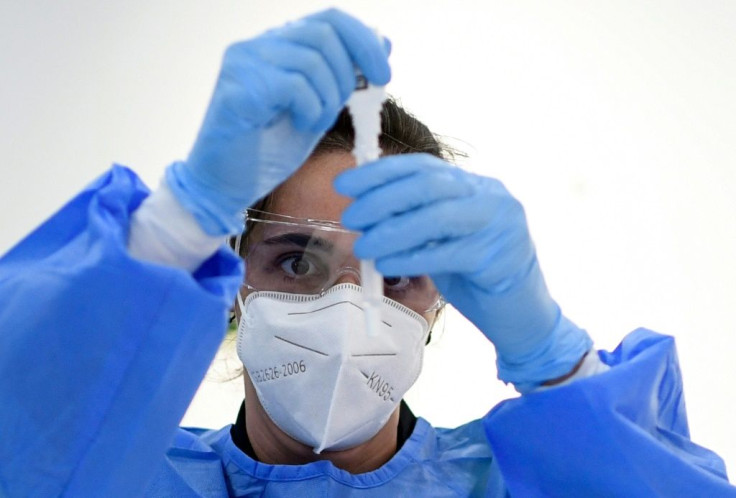Another Reason to Fill That Statin Script

Ignoring your statin medication? Read on.
Doctors at UC San Diego Health noticed that some patients who were taking cholesterol-lowering drugs known as statins before coming to the hospital with COVID-19 were half as likely to develop severe COVID-19 symptoms than similar patients who were not on statins.
Not only did patients taking statins for at least 30 days prior to getting COVID-19 avoid severe illness -- they recovered faster.
Meanwhile, back in 2007, doctors noticed that in some cases statins reduced the death rate from influenza, which is also caused by a virus. Statins seemed to work like anti-viral medications.
Is it possible that taking statins could have a similar protective effect on patients with COVID-19?
Who is vulnerable to COVID-19
It is now well known that people who have heart disease, high blood pressure and/or diabetes are most likely to become severely ill from COVID-19. These patients are generally taking medications for these problems, and some of them are also taking statins.
How COVID-19 infects lungs
Tariq Rana, PhD, led a team of researchers at UC San Diego School of Medicine that studied what goes on in the lung when it is infected with COVID-19. The researchers saw that a particular gene is “turned on.” That particular gene makes an enzyme that can help to stop several viruses (HIV, Zika and others) from getting into the cells of the body.
How does that work? On the outside surface of many cells in the human body are molecules known as ACE2. This has been in the news lately, because this is where the COVID-19 virus gets into the cells of the lungs -- ACE2 is like a doorway for the virus. The COVID-19 virus uses cholesterol to help it stick to the doorway. The job of the enzyme known as 25HC is to reduce cholesterol all over the body naturally. Removing the cholesterol makes the doorway less sticky. Statins enhance the naturally occurring 25HC to help it remove even more cholesterol, making it very difficult for the COVID-19 virus to get in through the doorway.
Although 25HC is made naturally by our bodies and does not appear to be toxic, it cannot yet be given to people. It does look promising as an anti-viral medication to treat or prevent COVID-19, but it will be some time before clinical trials for humans can start.
The severity of COVID-19
Gary Green, MD, FIDSA, is the medical director of Infection Control at Sutter Santa Rosa Regional Hospital in California and has been working with COVID-19 patients.
Dr. Green told Medical Daily that “a cytokine storm is so very stressful on the body and can continue for weeks, which worsens any underlying health issues.” A cytokine storm is a severe immune reaction by the body. In this case the body is responding to the COVID-19 infection. Cytokines are an important part of the normal immune response. They are trying to calm the inflammation caused by the infection. When a large amount of them are released at once they can cause bleeding and clotting problems and injuries to many organs.
That is why some COVID-19 patients end up on the ventilator for weeks at a time. Dr. Green stated that statins do reduce inflammation, but finds the idea of prescribing a statin to lessen the impact of COVID-19 for vulnerable patients “provocative.” Statins actually increase the number of ACE2 doorways, he said.
Dr. Green cautioned that if you are trying to decrease the severity of illness from COVID-19 by administering statins, you must carefully consider that you giving a patient a drug that increases the number of doorways while decreasing the stickiness of the doorways. Dr. Green advised not stopping the statins for patients already on them, but he does not recommend adding statins for patients who are not on them.
What does this mean
The recent published findings related to statins and COVID-19 are retrospective, which means researchers are looking back in time at the information. As the UC San Diego study was conducted at only one hospital, with a small number of patients, the findings do not apply to everyone. This means that further research is needed.
Dr. Green said a prospective study (which compares people with similar health problems who are on statins with those who are not) will provide more information about the virus.
Key take-home
In the absence of a vaccine or other reliable treatment, FDA-approved statins might be the right answer for some people. But the risks must be considered along with the potential benefits.
Yvonne Stolworthy MSN, RN, graduated from nursing school in 1984 and has had a varied career. Many years were spent as a critical care nurse. She has been an educator in a variety of settings, including clinical trials. Currently she is applying her nursing knowledge to healthcare journalism.
Published by Medicaldaily.com



























